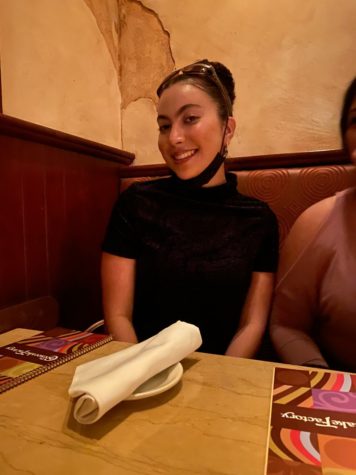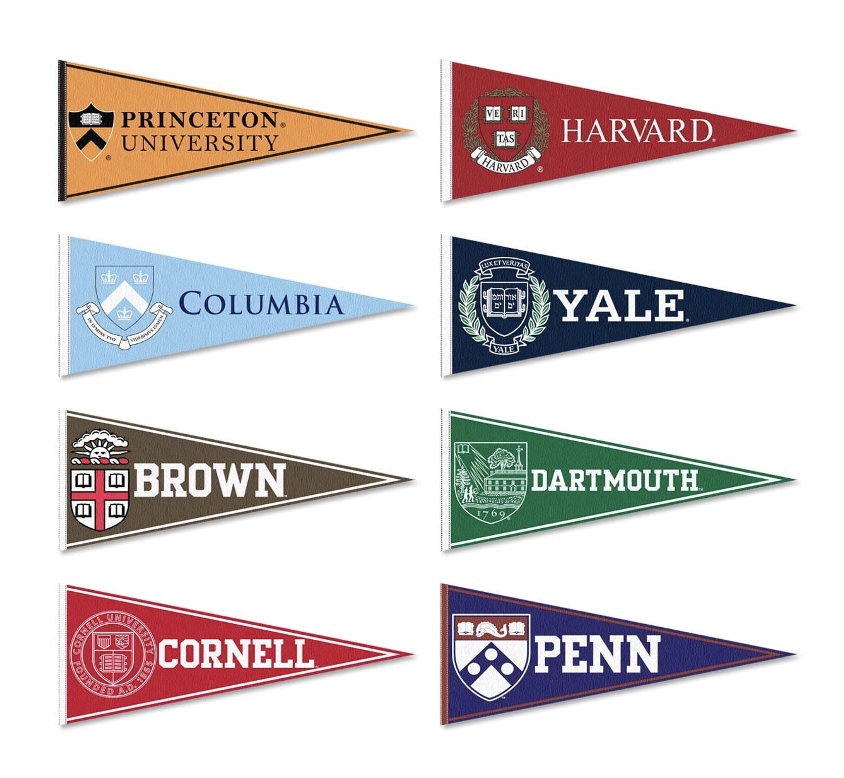Ivy Leagues: Apply or Deny?
The Ivy League is made up of eight top-tier universities: Princeton, Harvard, Columbia, Yale, Brown, Dartmouth, Cornell and University of Pennsylvania.
College decision season is approaching–and fast. Many seniors around the world are somewhere in between the process of applying and getting into college, and are feeling the growing stress of awaiting responses from their schools.
Navigating this complex time in life can be severely challenging, especially due to the almost-impossible action of not comparing yourself to your peers. Overhearing the whispers about 1500 SAT scores, full-ride college offers, and 5.0 GPAs can be very discouraging to students who might not be at the same academic level as those around them. Not to say people shouldn’t be proud of themselves, but it’s important to remember that the self-esteem and feelings of those around you can be negatively affected when you “flex” your high academic standings. Another important reminder is that earning stellar grades throughout high school will not guarantee success in life, instead, it’s work ethic that can take you where you want to be.
While on this topic of extreme academic rigor, something that I personally believe to be a little overrated is the stigma around attending Ivy League colleges. Made up of eight schools, the Ivy League consists of Brown University, Columbia University, Cornell University, Dartmouth College, Harvard University, University of Pennsylvania, Princeton University, and Yale University.
Taking a look at the top-tier opportunities, resources, and professors available to students at these distinguished universities, of course I understand why students pine after an acceptance letter. However, what makes an Ivy League school better than any other prestigious, private university? Why isn’t Stanford, one of the most prominent and esteemed universities in the world, considered an Ivy League school?
Coming in at #1 for the most expensive Ivy, Columbia University is known to be around $63,530 a year. Is paying almost $255k over the course of 4 years worth an education that you could possibly receive at a cheaper institution? Yes, Ivies are guaranteed to make the process of landing a high-paying job much easier after graduation–however, their costs are extremely unrealistic for most middle-to-lower-class families to cover, and the average rate of return for Ivy League students is about fifty percent less than public college students.
At the end of the day, college is very subjective. In my opinion, although it does help to have a degree, not everyone needs to attend college–especially an Ivy League school–in order to have a successful career.

EMAIL: [email protected]
Hey everyone!! My name is Terina, and this is my first year being a part of Ka Mōʻī. I used to be a border from Hawai'i Island, but now live in Kaneohe. I am currently a senior and I am excited to spend my last year on campus working to build the best newspaper for all of you! Something that takes up my life outside of school is Subway, which is where I work when I'm not busy with homework. My post-high plans are to attend college on the East Coast (hopefully in Massachusetts, New York, or Chicago!) and major in Broadcast and Digital Journalism. Although it is frequently changing, my dream career would be anything from a Reporter to a traveling Journalist. I feel that through this class, I will strengthen my passion for writing and get a realistic feel for what these careers could provide for me. Hope that this year is amazing for everyone!



Kanoa • Jan 10, 2023 at 9:23 am
I definitely agree that Ivy Leagues have become a little overrated in recent times. I still believe that getting into one is a big accomplishment, but is it worth it to actually attend? I’m not too sure.
Bella • Jan 10, 2023 at 9:22 am
I completely agree that college is very subjective, and it is ultimately up to the individual person to decide whether prestige is a necessity for their education.
Auli'i Anuenue Medeiros • Jan 10, 2023 at 9:20 am
I completely agree with this. I congratulate anyone who gets into these prestigious schools because it does in fact take a lot of work. However, I agree that attending one of these schools doesn’t necessarily mean you are better off than other students. Great thoughts!
Lexi • Jan 10, 2023 at 9:14 am
I really enjoy the different perspectives you added. Made me think more deeply about college
Leimomi • Dec 10, 2022 at 6:12 pm
Thought provoking for sure. And completely agree that work ethic is crucial to success!